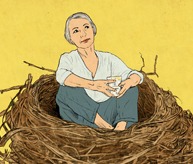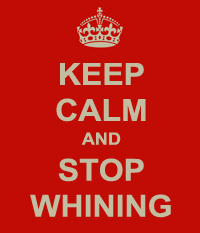Fixing Our “Broken Windows”
 Environmental cues tend to shape our actions because they subtly license us to behave poorly. And perhaps vice versa.
Environmental cues tend to shape our actions because they subtly license us to behave poorly. And perhaps vice versa.
The linkage between social order and crime was demonstrated by the “Broken Window” theory, put forth by James Q. Wilson and George L. Kelling in a 1982 article for The Atlantic Monthly.
How We Are Like Chameleons (A. Alter)
 There is not a single version of “you” and “me,” writes Adam Alter in his recent article (shared below) in the New York Times (Where We Are Shapes Who We Are, 6.14.13). Though we’re all anchored to our own distinct personalities, contextual cues sometimes drag us so far from those anchors that it’s difficult to know who we really are — or at least what we’re likely to do in a given circumstance. Drawing upon several research studies, he demonstrates how we behave differently, given circumstance, context, and environmental cues.
There is not a single version of “you” and “me,” writes Adam Alter in his recent article (shared below) in the New York Times (Where We Are Shapes Who We Are, 6.14.13). Though we’re all anchored to our own distinct personalities, contextual cues sometimes drag us so far from those anchors that it’s difficult to know who we really are — or at least what we’re likely to do in a given circumstance. Drawing upon several research studies, he demonstrates how we behave differently, given circumstance, context, and environmental cues.
Sexual Health Among Young Adults (Galinsky & Sonenstein)
 Sexual pleasure among young adults (ages 18-26) is linked to healthy psychological and social development, according to a study by researchers at the Johns Hopkins Bloomberg School of Public Health. The study (funded by the National Institute of Mental Health) is the first to use a representative population sample of heterosexuals (3,237 participants) to find a relationship between key developmental assets — specifically empathy, self-esteem and autonomy — and sexual pleasure.
Sexual pleasure among young adults (ages 18-26) is linked to healthy psychological and social development, according to a study by researchers at the Johns Hopkins Bloomberg School of Public Health. The study (funded by the National Institute of Mental Health) is the first to use a representative population sample of heterosexuals (3,237 participants) to find a relationship between key developmental assets — specifically empathy, self-esteem and autonomy — and sexual pleasure.
The findings are published in the June 2011 issue of The Journal of Adolescent Health.
After the Children Have Grown (M. Levine)

(NYTimes, 5.11.13)
On this Mother’s Day, Madeline Levine, psychologist and author of “Teach Your Children Well: Parenting for Authentic Success,” writes about the profound ways mothers change over the span of decades during which infants grow into fully fledged adults. Alongside the pain of loss, she writes, is the awareness that our children’s independence and self-sufficiency is the sign of a job well done.
The following is a selection from her longer New York Times opinion piece (5.11.2013).
The Problem with a Diagnostic Manual (S. Satel)
 Sally Satel, psychiatrist, scholar and co-author of the forthcoming book “Brainwashed: The Seductive Appeal of Mindless Neuroscience,” challenges the authority of the soon-to-be-published DSM-5, the diagnostic “Bible” in the psychiatric world.
Sally Satel, psychiatrist, scholar and co-author of the forthcoming book “Brainwashed: The Seductive Appeal of Mindless Neuroscience,” challenges the authority of the soon-to-be-published DSM-5, the diagnostic “Bible” in the psychiatric world.
The DSM is an imperfect guide to predicting what treatments will benefit patients most, she writes, because of the multiple and complex factors that contribute to mental illness. The following is a selection of her longer New York Times article (Why the Fuss Over the DSM-5, 5.11.13).
The Pathologization of Human Emotion (T. Gup)
 In a response to the recent discussion in the New York Times about the growing numbers of children and teens being diagnosed with Attention Deficit & Hyperactivity Disorder, Ted Gup (author and fellow of the Edmond J. Safra Center for Ethics at Harvard University) writes poignantly about a system “that devalues talking therapy and rushes to medicate, inadvertently sending a message that self-medication, too, is perfectly acceptable.”
In a response to the recent discussion in the New York Times about the growing numbers of children and teens being diagnosed with Attention Deficit & Hyperactivity Disorder, Ted Gup (author and fellow of the Edmond J. Safra Center for Ethics at Harvard University) writes poignantly about a system “that devalues talking therapy and rushes to medicate, inadvertently sending a message that self-medication, too, is perfectly acceptable.”
Learning to “Un-Whine” (V. Diller)
 While complaining may provide us an opportunity to “unload,” and even help us feel connected to one another as we share our grievances, excessive complaining can create an internal cycle of negativity and become a heavy burden to those close to us. By challenging thoughts and feelings that are attached to maladaptive behaviors, we work to transform these habits (such as excessive complaining) into positive actions that serve us better in the long run.
While complaining may provide us an opportunity to “unload,” and even help us feel connected to one another as we share our grievances, excessive complaining can create an internal cycle of negativity and become a heavy burden to those close to us. By challenging thoughts and feelings that are attached to maladaptive behaviors, we work to transform these habits (such as excessive complaining) into positive actions that serve us better in the long run.